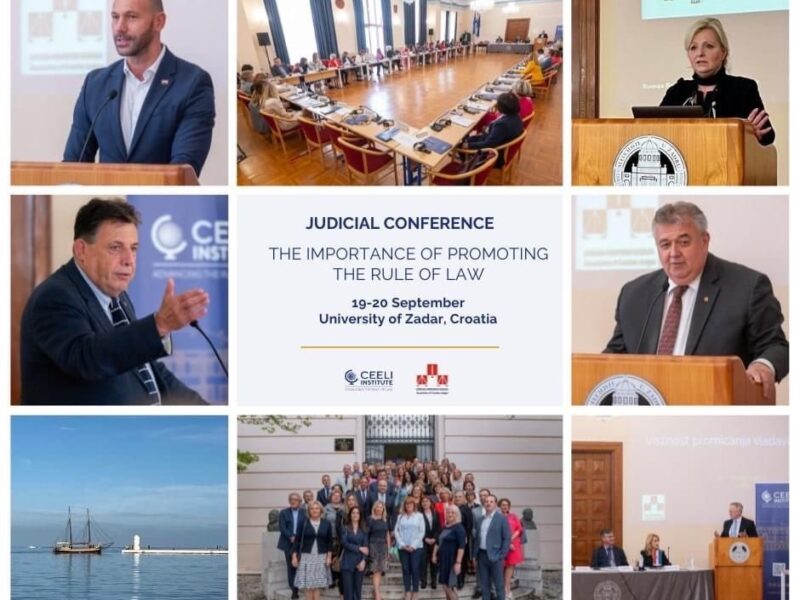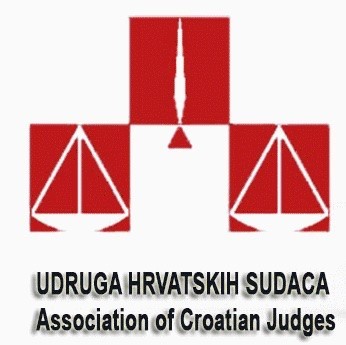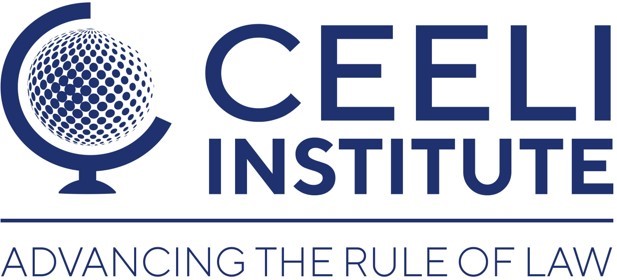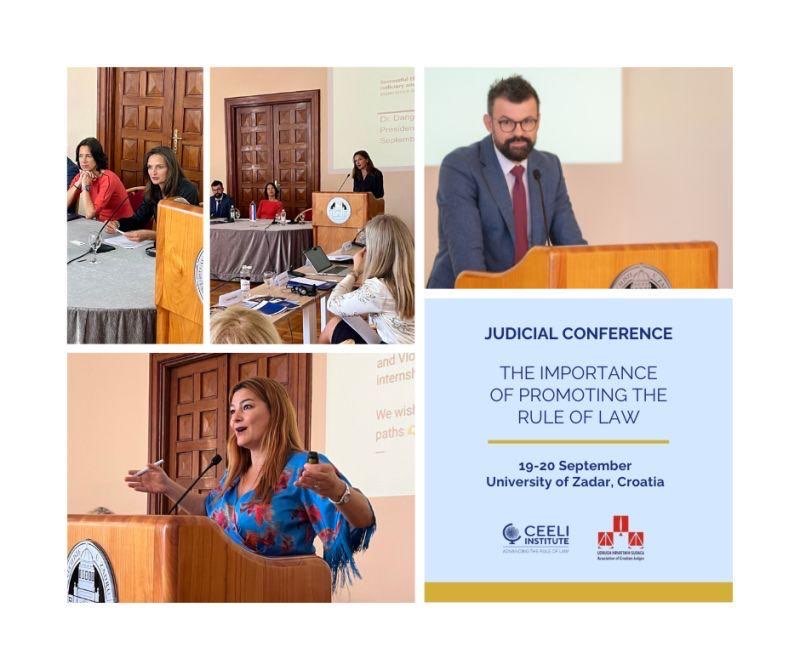Judicial Conference on the Importance of Promoting the Rule of Law

Strengthening Judicial Independence in Croatia
September 2024, Zadar, Croatia
On 19-20 September, the CEELI Institute, in partnership with the Croatian Judicial Association, hosted a conference in Zadar on the importance of promoting the rule of law. In Croatia, judges face low public perception and understanding of key issues of the rule of law and the importance of an independent judiciary. The event focused on addressing these key challenges, with input shared by Croatian experts and judges from Poland, Lithuania, Slovenia, and Kosovo.


The program was opened by Croatia’s Minister of Justice, Public Administration, and Digital Transformation, Damir Habijan, who emphasized the importance of the rule of law as a fundamental pillar of the European Union. Damir Kontrec, President of the Croatian Judicial Association, along with Krystian Markiewicz, President of the Polish Association Iustitia, and Vesna Bergant Rakocevic, President of the Slovenian Association of Judges, shared lessons learned on improving public trust in the judiciary.
In his keynote, Đuro Seesa, President of the International Association of Judges, urged judges to speak out in defense of the rule of law when necessary, a sentiment echoed by Senior Croatian Supreme Court Judge Ileana Vinja, who stressed the importance of communication skills in modern-day judiciary work: “I thought we had to speak through our decisions, but those are bygone days. We know the law, but we are not trained in communication; therefore, we need the help of real communication experts who know how to communicate. It is important for us to start building partnerships and make some changes in our approaches. We may not reap the fruits of our efforts now, but our successors will, and that’s important”.
At CEELI Institute’s Judicial Conference in Zadar, co-organized with the Croatian Judicial Association, participants and experts tackled the critical challenges facing the judiciary in Central and Eastern Europe, from financial strains to strategic communication.
Ksenija Renko, Strategic Communications Consultant and director at Jupiter Strategic Consulting, urged strategic communication: “The Croatian judiciary faces significant public challenges that should be effectively managed by good communications practices. Substantial deficiencies in how Croatian judges and courts present themselves to the public have inevitably led to a negative perception of the judiciary, as evidenced by recent research. Citizens often struggle to understand judicial decisions and processes, resulting in misinterpretations and reinforcing skepticism about the impartiality of the judiciary. Lack of understanding is often magnified by how the news media portrays the courts and judicial decisions. This situation underscores the need to improve how courts communicate with the public. It is vitally important for the Croatian judiciary to implement strong strategic communications practices. Utilizing best practices in communications will promote respect for the judiciary, help the public understand the importance of judicial independence, educate people on how courts work and help them understand court processes, address the current negative public perception of the judiciary, and, importantly, build public support for important goals of the judiciary. There may be nothing more important to the judiciary than public trust. Without public trust, nothing can be accomplished. Judicial independence and sufficient funding for the courts depend on public trust, and public trust can be strengthened significantly by implementing a good strategic communications plan.”
Danguolė Bublienė, President of Lithuania’s Supreme Court, stressed the link between judicial independence and fair remuneration, while Bartłomiej Przymusiński of the Polish Judges Association IUSTITIA advocated for unity and visibility: “Be associated, be visible in the media, build coalitions, and always be prepared for a crisis.” Human rights lawyer Marcin Mrowicki emphasized the need for judges to stay connected to society, referencing Europe’s standards and Israel’s protests against judicial overreach. Slovenia’s Judge Vesna Bergant-Rakocevic highlighted how cooperation between judicial bodies led to pay increases for judges. Ioanna Lachana, Head of Communication at the EU Special Representative in Kosovo, underscored the need for transparency and public engagement.




